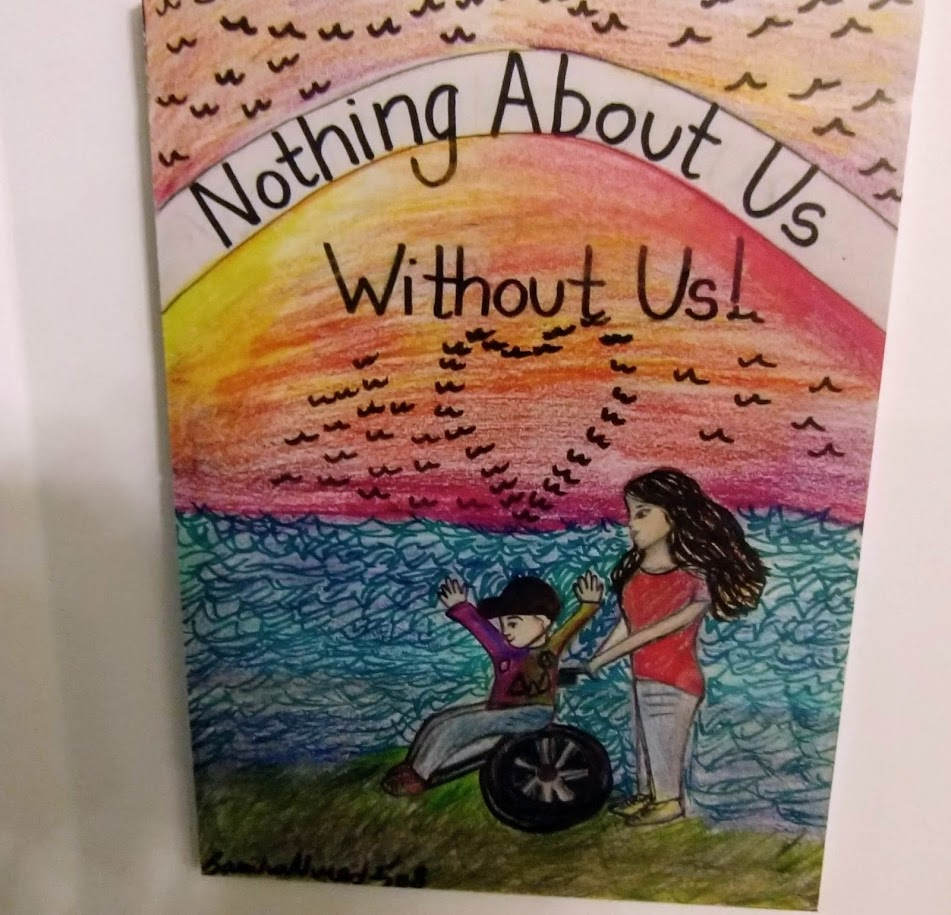Lessons for Teachers about The World's Largest Minority Group
Don't know what the largest minority group is?
Tools and ideas to transform education. Sign up below.
You are now subscribed
Your newsletter sign-up was successful

Victor Calise, Commissioner at the Mayor's Office for People with Disabilities and Haben Girma, the first deaf-blind person to graduate from Harvard Law, shared several lessons about the world's largest minority group with attendees at the NYC Department of Education's Accessibility Expo. The Expo was held at Brooklyn Law School on May 31st.
Don't know what the largest minority group is? It is people with disabilities. They make up about one billion people world-wide.
Lesson's about the world's largest minority group
Innovation
Disability is an opportunity for innovation.
Accessible environments
People with disabilities are not disabled. The only thing that disables people is their environment. If we make the environment (physical, social, digital) accessible, we enable the person.
Special needs
When describing people with disabilities, you may want to rethink the term "special needs." We all have special needs.
Hold the mic
If a microphone is available when you are speaking, use it. Someone may need you to use it so they can hear better. Don't make them ask or stand out.
Employment
75% of people with disabilities are jobless. Communities do a bad job of transitioning disabled youth from school to college or career.
Communities like New York City are getting better at addressing this need with programs such as NYC: AT WORK and Access VR. These programs help match people to jobs.
Tools and ideas to transform education. Sign up below.
Overcoming disability
Reconsider thinking about how successful people with disabilities "overcame" their disability. Victor Calise said he would never trade in his disability. His disability is not to be overcome. Instead communities must help to remove digital, attitudinal, and physical barriers so those with disabilities can do whatever they want.
Nothing about us, without us
Do not create, decide, build, name, make policies about something affecting disabled people without their participation and input.
Don't be grateful
Non-disabled people should not feel grateful about not having disabilities. Haben Girma explains that this perpetuates hierarchies of us versus them. This continues the marginalization of people with disabilities.
Just ask
If you are unsure how to refer to someone's disability, ask them.
Want more?
You can watch an amateur Facebook livestream of each speaker. Unfortunately, captions are not automatic on Facebook, so the videos are not completely accessible. However, I did try to capture the sign language interpreter as I captured the videos, so there is some accessibility available.
Watch the 11-minute livestream.
Part 1: 29 minutes. Haben begins at at 10:00
Part 2: 4 minutes
Part 3: 25 minutes
Lisa Nielsen (@InnovativeEdu) has worked as a public-school educator and administrator since 1997. She is a prolific writer best known for her award-winning blog, The Innovative Educator. Nielsen is the author of several booksand her writing has been featured in media outlets such as The New York Times,The Wall Street Journal, Tech&Learning, and T.H.E. Journal.
Lisa Nielsen (@InnovativeEdu) has worked as a public-school educator and administrator since 1997. She is a prolific writer best known for her award-winning blog, The Innovative Educator. Nielsen is the author of several books and her writing has been featured in media outlets such as The New York Times, The Wall Street Journal, and Tech & Learning.
Disclaimer: The information shared here is strictly that of the author and does not reflect the opinions or endorsement of her employer.
